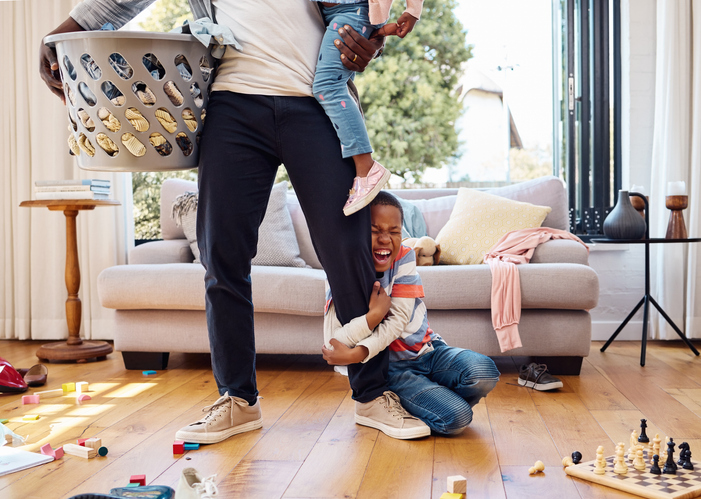Being a dad has been one of the most transformative experiences of my life. Before having kids, I thought I was a pretty patient person. I mean, how hard could it really be to keep calm while raising a child? Turns out, I was wildly underestimating the emotional rollercoaster that is fatherhood. Patience, I’ve learned, isn’t just something you have or don’t have. It’s a skill—one I’m building, brick by brick, tantrum by tantrum.
Here’s a deep dive into what being a dad has been teaching me about patience, and how those lessons are shaping not just the way I parent, but the way I approach life in general.
The Early Days: A Crash Course in Chaos
When my first child was born, my world shifted overnight. Suddenly, my schedule wasn’t mine. My sleep wasn’t mine. Even my free time to decompress wasn’t mine. Those first few months were pure survival mode. I’d find myself pacing the living room at 3 a.m., bouncing a crying baby, and silently asking the universe, “Why won’t you just sleep?”
At first, I’d get frustrated. Why couldn’t I “fix” whatever was wrong? Why couldn’t I control the situation? But slowly, I realized that the baby wasn’t the problem—my expectations were. I needed to let go of my need to control things and just be present. That shift in mindset didn’t happen overnight, but it was the first real lesson in patience.
The Toddler Years: When Tantrums Test Everything
If you think you’re patient, spend five minutes negotiating with a toddler who insists they need to wear a superhero costume to daycare. Toddlers are like tiny emotional hurricanes. One moment they’re laughing, the next they’re sobbing because their banana broke in half. It’s both hilarious and utterly maddening.
What’s been eye-opening for me is realizing that tantrums aren’t them “being bad” or trying to drive me nuts. They’re justoverwhelmed and don’t yet have the tools to manage their emotions. That perspective has helped me stay calmer during the storm (not always, but I’m working on it). Instead of snapping or rushing to “fix” the situation, I’m learning to justbreathe, get down to their level, and say, “It’s okay to feel upset. Let’s figure this out together.”
Patience Isn’t Passive—It’s Active
One of the biggest misconceptions I had about patience was thinking of it as a passive quality, like waiting in line or sitting in traffic. Fatherhood has taught me it’s actually very active. It’s choosing to stay calm when your initial reaction is to lose it. It’s engaging with your child on their terms, even when you’re exhausted after work. It’s stepping back in the heat of the moment and remembering that you’re the adult in the room.
There was a moment recently when my preschooler spilled an entire glass of milk all over the dinner table. My first instinct (after a long day) was to yell out of sheer frustration. But then I paused. They weren’t trying to ruin dinner—they were learning. So instead, I took a breath and said, “Oops! Accidents happen. Let’s clean it up together.” That simple choice—reacting with calm instead of anger—turned a potential meltdown into a teachable moment.
Teaching Patience by Modeling It
Kids are like sponges; they soak up everything you do. If I lose my temper when things don’t go my way, I can’t expect them to stay calm when they’re struggling. This realization hit me hard one afternoon when my toddler got frustrated while building a block tower. They angrily swept the blocks off the table, and I saw a flash of my own frustration mirrored in their little face. It was a wake-up call.
Now, I try to be extra mindful of how I handle my own emotions. If I’m stuck in traffic or dealing with a stressful situation, I’ll say out loud, “This is frustrating, but getting upset won’t help. Let’s figure it out.” It’s humbling to realize that my behavior is shaping how my kids will approach challenges in their own lives.
Finding Patience in the Everyday
Patience isn’t just for the big, dramatic moments. It’s in the small, everyday things too—like waiting as your child painstakingly ties their shoes, even though you’re running late. Or answering “why?” for the 47th time in a single afternoon. These moments used to drive me crazy. I’d think, “Why can’t they just hurry up?” or “Why do they need to know everything right this second?”
Over time, though, I’ve come to see these little interruptions as opportunities. They’re not just testing my patience—they’re teaching me to slow down. Life doesn’t always have to be a race to the next thing. Sometimes, it’s okay to stop and watch your child marvel at a butterfly or ask endless questions about how airplanes work. Those are the moments they’ll remember, and honestly, they’re the moments I’ll miss someday.
Patience Is Self-Care, Too
One surprising thing I’ve learned is that patience isn’t just about how I interact with my kids—it’s also about how I treat myself. Being a dad is hard, and I’ve made plenty of mistakes along the way. Early on, I’d beat myself up for every little misstep. But I’ve come to realize that if I want to be patient with my kids, I need to be patient with myself too.
Now, when I mess up (because I do, often), I try to forgive myself and move on. Maybe I snapped when I shouldn’t have, or maybe I didn’t handle a tantrum as gracefully as I could have. Instead of dwelling on it, I’ll apologize to my kids if necessary, learn from it, and do better next time. Parenthood isn’t about being perfect—it’s about growing, one day at a time.
The Unexpected Joy of Patience
Here’s the thing I didn’t expect: learning patience has actually made my life more joyful. When I stop rushing through the day and let myself be present, I notice all the little things I used to overlook—the way my kid’s face lights up when they figure out a new skill, or the hilarious and unexpected things they say without a filter. Patience has helped me see the beauty in the chaos, and for that, I’m grateful.
What I’ve Learned So Far
Fatherhood is a journey, and I’m far from perfect. But here are a few key takeaways about patience I’ve picked up along the way:
- Let go of control. Not everything will go according to plan, and that’s okay. Flexibility is your best friend.
- See things from their perspective. Kids aren’t trying to be difficult—they’re learning to navigate a big, confusing world.
- Model the behavior you want to see. If you want your kids to be calm and patient, show them how it’s done.
- Slow down. Life moves fast, but kids don’t. Embrace the slower pace—they’re teaching you to live in the moment.
- Be patient with yourself. You’re going to mess up, and that’s okay. Parenthood is about progress, not perfection.
Being a dad hasn’t made me a saint. I still lose my cool sometimes, and there are days when my patience feels razor-thin. But every tantrum, every spilled drink, and every 3 a.m. wake-up call is teaching me to be better—not just as a parent, but as a person. Patience is a work in progress, but it’s a lesson I’m grateful to be learning, one meltdown at a time.

